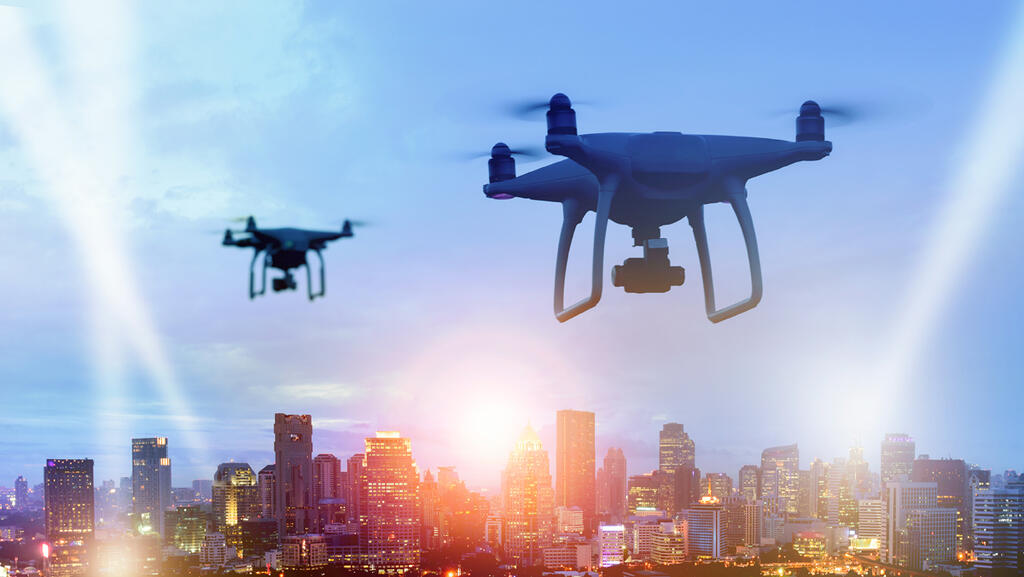
ISRAEL AT WAR
AI proving pivotal for online warfare against Hamas
Technology that helps spot misinformation and identify missing loved ones has proven more useful against Hamas than as a tool for weaponry
It has often been pondered that we “know not with what weapons World War III will be fought, but World War IV will be fought with sticks and stones.” The quotation, often miscredited to Albert Einstein, sheds light on the potential direction of our world and the destruction technology may bring.
The world’s armed forces and governments reacted accordingly to this threat. Yet the most advanced technologies could not stop the violence that ensued in Israel on October 7 when members of Hamas broke through walls, sailed from the skies, and murdered Israelis with machine guns, knives, and fire.
2 View gallery


Drones can help the battleground, AI can help the defense online
(Photo: Shutterstock)
“Humans are very good at war without the need for AI,” said Uri Eliabayev. The AI consultant for organizations and government offices also runs Israel’s largest machine and deep learning community via Facebook, with 36,000 experts each sharing insights and projects with one another. “No matter how many advanced AI technologies you have, once you have thousands of people breaching out, what can you do?”
The IDF has learned a painful lesson in war, especially how it relates to Hamas: AI is still not on the frontline of the fight. If a country's enemies use tunnels and paragliders to invade a land, then technology can reside only as a supporting machine on the battlefield. Algorithms may analyze and track, but bullets will penetrate and kill.
Of course, the following hours and days that continued on that day proved warfare was not restricted to the land. Keyboard warriors worked tirelessly to spread misinformation, upload unrelated photos of different warzones, and challenge the authenticity of images. American congresswoman Ilhan Omar spread false images blaming Israel for the murder of children, which could be dated to 10 years prior when they were killed by Assad in Syria.
Another moment that sowed chaos online was when Israel was forced to publish graphic images of child deaths due to the public’s distrust of the claims. The image was spread by conservative commentator Ben Shapiro but social media platform X had incorrectly added a ‘Community Note’ calling the images AI-generated.
History shows us there is no need for AI to innovate misinformation. Recycled images of war and tools like Photoshop are adequate enough to falsify evidence and skew narratives. Logically, it means AI may be best served in times of war not for the violence it can cause, but for the peace it can bring.
“There are a lot of usages in the community using AI models in order to build projects that could be helpful in this war,” Eliabayev explained. “There are several initiatives now that use AI in different ways… it is very useful for everything related to scraping and going over the internet for understanding misinformation.”
AI has already proven its value in helping with the identification of fake news or manipulated media. Images can be scanned and reviewed in real-time to try to minimize the false messaging they might perpetrate. Since Hamas has so disgustingly yet proudly filmed and uploaded its atrocities, advanced technologies can use facial recognition tools to identify the faces of the kidnapped victims and try to assess their location or physical state.
Efforts in this regard are being made tirelessly by Israeli techies who may belong to communities like Eliabayev’s Machine & Depp Learning Israel. They’re also made by companies at large, offering their tools or services in the form of cloud credits or computing power. Foreign companies with R&D centers in Israel have also offered financial or technical support in any way they can.
Another project was the recently launched Swords of Steel platform that helps families search for missing loved ones. Remember710 was launched as a service that translates personal testimonies from Hebrew to English and creates an AI-generated ‘storied’ format ready to be shared online. It also offers permission for IDF Spokespeople or the Ministry of Foreign Affairs to access the testimonies and share the victims’ stories either anonymously or openly.
Recent days have shown us the cruelty of our capabilities. Smart defense was outsmarted by dumb weaponry; artificial intelligence is barely keeping up against authentic misinformation. As the consequences of warfare spread online and off, the role of AI is finding its value not in its ability to fight but in its value to protect and defend.















